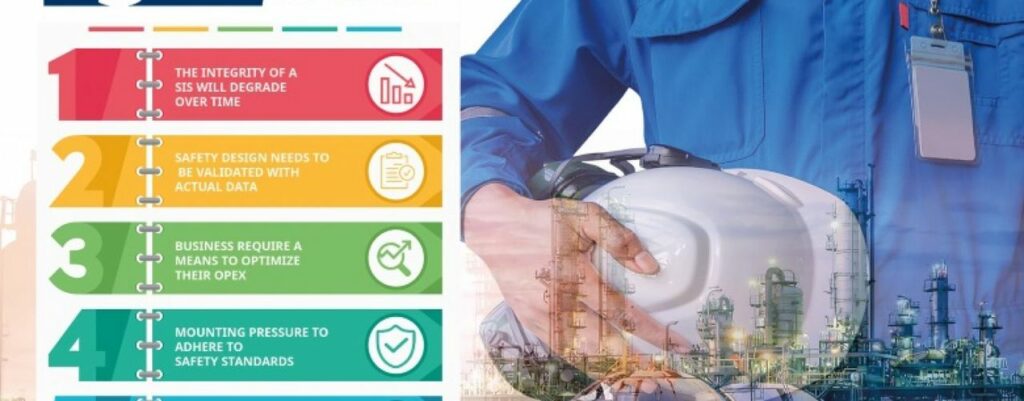A well-known marketing rule is that, on average, you have to come into contact with a message seven times before you decide to buy a product. After all, a message is easily lost between all the stimuli that we have to deal with all day long.
Nowadays we get no less than 3,000 messages fired at us every day. Varying from LinkedIn ads to dozens of e-mails. And if you want the information to get stuck between all those stimuli and noise, then the message has to arrive at the recipient several times. Especially when information is of fundamental importance, as in the case of functional safety.
Snowball effect within functional safety
If functional safety processes within a plant are incorrectly followed up, a snowball effect can occur with undesirable consequences. That is why Yokogawa has been offering functional safety training courses for decades. A field in which people must be able to identify potentially dangerous process situations or undesirable process events in order to prevent accidents with sometimes major consequences for people, the environment and finances.
But what if this safety training is only followed once by someone who is responsible for safety within a plant? And even after one training session a ‘certificate for life’ is obtained? That sounds far from safe. Everyone knows how fast the world is currently changing. And although slower, the process industry is not lagging behind and is changing along with it. Take, for example, the IEC standards relating to process safety: they change roughly every 10 years.
Functional safety knowledge does not standstill
The safety experience of Yokogawa trainers goes back to the ’60s of the last century. They know better than anyone that if functional safety is not your full-time job, your specific functional safety knowledge will quickly fade away. And so it is with almost all students that they have had in their training. These people are not 100% occupied with functional safety in their daily work, but maybe 5% or 10%.
TÜV Rheinland opts for the power of repetition
[ot-video][/ot-video]
That is why all course providers of the TÜV Rheinland Functional Safety training courses have opted for the power of repetition over the past year. Yokogawa is one of those course providers accredited by TÜV Rheinland. Every year two types of training courses are organised: one for people involved in the engineering and realisation phase and one for people in the operational phase (the phase in which the accidents/incidents/disasters take place). Participants who successfully complete the training will receive an official TÜV Rheinland certification which can be extended after 5 years for a further 5 years.
IEC standards even require a repetition of training and assessment
10 years after the last training course has been taken, students can renew their certificate for another 10 years by attending a training course again and taking an exam. In this way, they fully comply with the competency requirement of the IEC standards “re-training and re-assessing”. To make a note of the situation, to repeat the basic principles of functional safety and to see, together with students from other companies, that things can always be done more safely! This way we can be sure that those who have followed a TÜV Rheinland Functional Safety training and work in the high-risk process industry are up-to-date as much as possible. And if there are safety-related issues that they cannot solve themselves, we can help with safety advice or assessments where necessary, because Yokogawa has many years of experience in this area as well.
It can always be safer
Safety specialist Niels Huttenhuis at Yokogawa acknowledges the importance of seeing TÜV Rheinland certified once every 10 years:
“I am working full-time on safety myself and yet after 5 years I was surprised again after my refresher training that a number of things were treated that were new to me or that I had forgotten. I found that reflection very valuable.”
If you want to remember a message, you have to repeat it
Martin Luther King, one of the best speakers, already knew: repetition is a powerful technique for training people and conveying information. So if you are active in the process industry and responsible for safety, have your expertise updated regularly. That saves lives. And Yokogawa likes to help make the world a little safer.
Picture credits: Rawf8- stock.adobe.com




